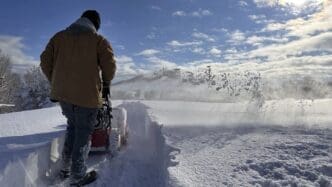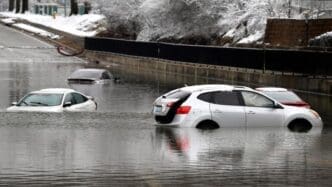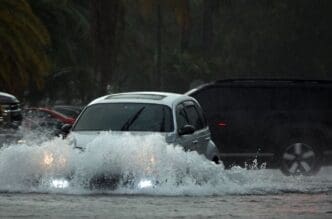Recent weather patterns have brought intense snowfall to parts of upstate New York, Pennsylvania, and Michigan, as the region experienced a classic case of lake-effect snow.
The phenomenon of lake-effect snow typically initiates when cold air travels over the warmer waters of large lakes like the Great Lakes. This movement causes the air to pick up moisture, which then rises into a colder zone conducive to snowfall, resulting in large snow clouds. Notably, weather expert Phillip Pandolfo from the National Weather Service in Buffalo, New York, clarified that it’s not the lakes that provide most of the moisture, but rather the cold air passing over them.
The process results in narrow bands of clouds that can deliver snow at rates reaching 2 to 3 inches per hour or more. Such bands can heavily impact one locality while leaving another nearby area relatively untouched. This variability makes predicting the lake-effect snow a challenging task, as small shifts in wind direction can considerably affect snowfall locations and intensities.
Living near a Great Lake often means dealing with significant snowfall because of this effect. For example, Western New York once experienced over 6 feet of snow in a single lake-effect storm, marking it as one of the most severe in the area’s history. Similarly, Michigan’s Upper Peninsula often sees their annual snowfall reach over 20 feet due to these conditions.
This meteorological occurrence is not limited to the Great Lakes; other large lakes such as Utah’s Great Salt Lake can also experience similar weather patterns. The lake-effect is a fascinating aspect of local climates, creating dramatic weather changes in specific regions.
Lake-effect snow creates unique challenges and experiences for those living near large lakes. While it can lead to remarkable snowfall events, understanding the phenomenon helps in better preparation and response to its unpredictable nature.
Source: Apnews








